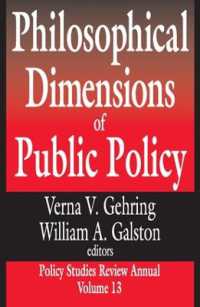- ホーム
- > 洋書
- > 英文書
- > Politics / International Relations
Full Description
He was key to the foundation of the International Peace Research Association (IPRA) in 1964 and of the Conflict Research Society in the UK, because he thought that words and ideas were not enough: there needed to be instrumentsof change.




